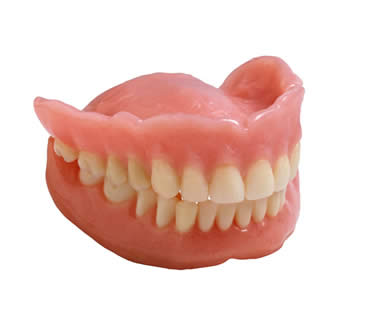
Porcelain veneers hide your teeth’s imperfections so that you are happier with your smile. They are very thin shells that are adhered onto the fronts of your teeth to permanently give you the look you want. Veneers can make your teeth look straighter, whiter, and better than ever before.
How do you know if veneers might be right for you? Here are some things to consider when deciding whether veneers can help your smile:
- You would like to alter your teeth permanently.
- You want to change the color of your teeth.
- Your front teeth are broken or chipped.
- Your teeth are not evenly spaced.
- Your teeth are not aligned straight.
- You’d like to improve your smile quickly.
- You don’t want to affect much of your natural teeth.
- You would like a brighter smile.
If any of these statements describe your situation, then porcelain veneers might be a good choice for you. Of course the first thing you need to do is consult a dentist for advice. Many times, the ideal person for the job is a cosmetic dentist. This type of specialist focuses on performing procedures to help patients achieve their cosmetic smile goals. Veneers is one such treatment that has grown in popularity because it transforms smiles in just a few short appointments, and it is a painless approach.
When you visit a cosmetic dentist, you will be able to describe what bothers you about your teeth and learn if you are a good candidate for veneers. If so, the dentist will explain the simple process of having your porcelain veneers custom-made in a lab for you. Your natural teeth will undergo some minor preparation, and when your veneers are ready the dentist will securely attach them to your teeth. Then you will be set to show off your new smile!
Our dental office is located in Ottawa

If you have lost all of your teeth or just a few, you are probably a good candidate for dentures. Dentures, also known as removable prosthodontics, are used for the dental restoration or replacement of missing or broken teeth. You may want to consider dentures if any of the following apply to your situation:
- You have very few remaining teeth and they are in poor condition.
- You have suffered bone loss in your mouth so severe it precludes you from considering dental implants.
- You have advanced gum disease that has resulted in the loss of multiple teeth.
- You have lost many teeth, and your remaining teeth are suffering from decay and receding gums.
- You are committed to practicing excellent oral hygiene in order to take good care of your dentures.
You may not be a good candidate for dentures if any of the following apply:
- You are a young patient whose jawbone has not fully developed.
- You grind or clench your teeth.
- You have a sensitive gag reflex.
- You are a smoker.
If you feel you are a good candidate for dentures, your dentist will evaluate the health of your teeth and gums and determine if full or partial dentures are the best choice for you. There are many factors to consider when having dentures placed, and your dental professional can help you make a decision that fits your needs and lifestyle. If you wish to regain oral functionality and improve your smile, dentures may be your answer to once again enjoying a full set of beautiful, natural looking teeth.
Schedule your appointment at our Ottawa dental office

By far, the best way to brighten and whiten your smile is through an in-office treatment performed by your dentist. The concentration of hydrogen peroxide in the whitening gel used by your dentist is much higher than that which can be obtained over-the-counter by you in a drugstore. Lasers or special lights are employed by many dentists to achieve the best results.
With the rise in popularity of in-office teeth whitening, some specialty brands have emerged that offer different methods and ingredient strengths to address even the most stubborn stains.
- BriteSmile also uses whitening gel and a blue light, but their gel has a concentration of 15 percent hydrogen peroxide and a nearly neutral pH level, a mix that is easier on sensitive gum tissue.
- Lumbrite employs a custom light, known as the Sapphire Plasma Arc Curing and Whitening Light. This light has no destructive UV rays, although the gel is so strong it can work without the light. Lumbrite also has a desensitizing agent in its gel to reduce problems with sensitivity.
- GLO Science Professional has a specialized mouthpiece that employs Guided Light Optics (GLO) that works in tangent with a whitening gel, delivering light and heat to the tooth surfaces. The mouthpiece prevents oxygen from leaving the treatment area, giving optimal whitening results.
- Philips Zoom! is one of the most popular and well-known of the teeth whitening brands available at the dentist’s office. Their whitening gel uses a 25 percent concentration of peroxide which is stimulated by a proprietary blue light to achieve maximum whitening and is said to provide a more sparkling look to your enamel.
- Opalescence uses one of the most powerful gels available, utilizing a 40 percent concentration of hydrogen peroxide as well as potassium nitrate to reduce gum and tooth sensitivity after treatment. It also contains fluoride which strengthens the tooth enamel and reduces decay.
Talk to your dentist today to determine which of these or any other professional whitening methods is best for you and your teeth whitening needs.
Our dental office is located in Ottawa

What defines sedation dentistry?
Sedation dentistry is any type of dentistry treatment performed in conjunction with the patient being given some kind of anesthetic. Sedation dentistry can give the dental professional the freedom to perform all types of therapies while the patient is completely comfortable and pain-free.
Is sedation dentistry safe?
While utilizing sedation dentistry, you will be monitored by your dentist at all times. Age, medical conditions and existing medications can all be factors to consider when choosing a type of sedation.
Is conscious sedation the same thing as sedation dentistry?
Conscious sedation is the term for a type of treatment a patient receives that allows the patient freedom from fear, anxiety and pain while still remaining aware enough to follow simple instructions given by the dentist’s team. Conscious sedation can be administered on several levels, customized to each particular patient’s anxiety level.
How is conscious sedation administered?
Conscious sedation can be administered orally, inhaled or by IV. Oral sedation is delivered via a pill. Most patients take the pill one hour prior to the treatment. Some choose to take a pill the night before to be certain to get a good night’s sleep. Inhaled sedation is commonly known as laughing gas, and can allow you to feel as though you are drifting away during a treatment. Deeper, faster-acting sedation can be achieved through intravenous sedation.
Should I choose sedation dentistry?
Sedation dentistry is a choice open to anyone who is in good physical shape who has fear, anxiety or stress about an upcoming dental treatment. If you find yourself dreading a visit to the dentist to get necessary work completed, be honest with your dentist about your fears and ask about all of the ways sedation dentistry can help you get the work you need, in comfort and ease.
If you need a dentist in Ottawa contact us today

Pain, sensitivity, and trouble eating or sleeping are only a few of the uncomfortable symptoms of a damaged tooth. Sometimes the inside portion of a tooth, or its pulp, becomes so damaged that action must be taken. It could come in the form of extracting the tooth or it might be able to be saved through root canal treatment.
Virtually every dentist recommends root canal therapy over tooth extraction. It’s almost always better to save your natural tooth. Otherwise, you’ll end up with a hole in your smile and the problems that accompany it.
A tooth can be damaged for a variety of reasons such as severe decay, trauma, or deep cavities. The damaged pulp contains nerves, which is one reason that many patients experience severe pain. Although dental fillings can remedy some cavities or decay, when the situation advances to the extent of harming the tooth pulp, fillings are not enough. Root canal treatment is usually the best way to repair the tooth without having to pull it.
A root canal procedure involves drilling into the tooth so that the pulp can be completely removed and the canal thoroughly cleaned. Then the area is filled with special material and sealed to prevent future damage. Often, a dental crown is placed on top of the restored tooth to provide added protection. This process alleviates any symptoms and give you back your fully functional, natural tooth.
If you were to opt for tooth extraction instead of root canal treatment, you’d be choosing a more invasive approach. The procedure can be intrusive, time consuming and costly. Recovery from tooth extraction can be uncomfortable and take longer than root canal therapy. Careful oral hygiene is necessary after extraction to avoid infection or complications. You’ll also be left with an unappealing hole in your smile that can make eating and speaking more difficult, and your other teeth will likely start moving into that empty space.
To determine the best treatment for you, consult a reputable dentist. You’ll learn about the options and how root canal therapy may be the best choice in restoring your oral health and your smile.
If you live in the Ottawa area contact us today

Whether you are a teenager or an adult, you may have pain associated with your wisdom teeth. In a perfect situation, these back molars erupt last and fit right into your mouth without problems. Many people are not so lucky, however. It is common for these teeth to attempt to come in, but have nowhere to grow in the space where your other teeth are already established. This can result in a very painful toothache.
The first step you should take is visiting your dentist, where x-rays will be taken to see exactly what is happening in your mouth. The x-rays will be examined to determine the angle the teeth are growing, how much room is available for them to develop, and if there is any infection present. Depending upon the examination results, surgery may be necessary to remove your wisdom teeth.
Your dentist will look for signs that indicate your wisdom teeth need to be removed. The main indications for tooth removal include:
- A tooth embedded in your gums
- A tooth that is only partially erupted
- The presence of a cyst around the tooth
- A tooth growing in an awkward angle
If your dentist recommends removal, it is usually suggested to have it done as soon as possible to avoid further problems and continued pain. Sometimes it is necessary to remove only a single tooth, and in other cases multiple teeth may need to go. The complexity of the removal depends on whether the teeth are embedded, the angle of growth, and other issues. Your dentist will advise you on the safest and most effective plan for taking care of your wisdom teeth and getting rid of the pain.
If you live in the Ottawa area contact us today







